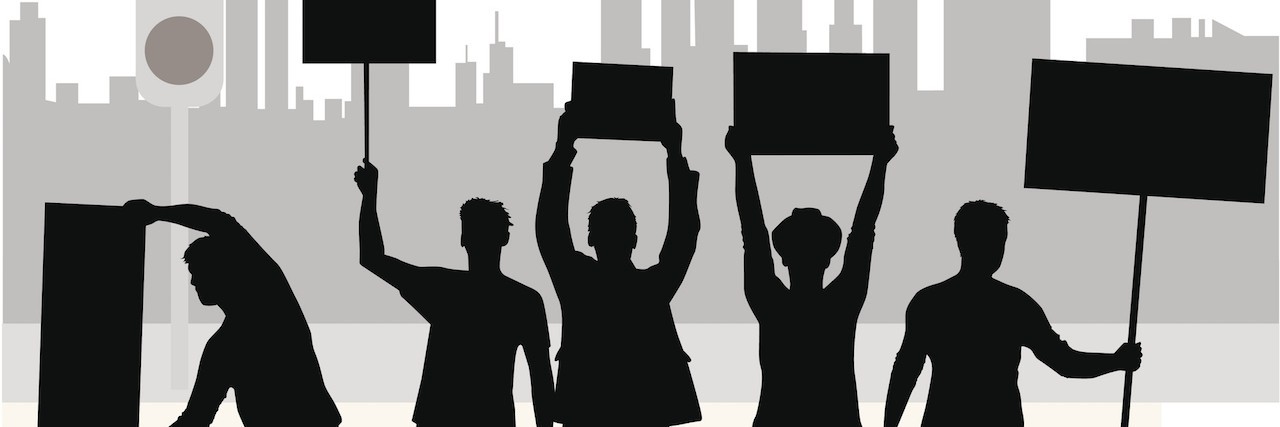Why Raising Awareness Is So Important to People With Chronic Illnesses
Awareness: Why is it so important to the chronically ill community and any other diseases? Well, remember back a couple years ago when the Ice Bucket Challenge blew up your Facebook newsfeed and you got pretty sick of it real fast? I remember asking myself, “Why did they start this? What does it have to do with ALS? Is it even ALS that they’re trying to raise awareness for, and how can that even help at all?” Even though I’ve been sick for most of my life I didn’t understand what good it would do for people to challenge their friends to dump cold water on themselves. But here is the key: It was catchy and spread like wildfire. And even though I’m sure the real message went over many people’s heads (get it? They were dumping water over their heads) if just a few people knew more about what ALS is, what it means to live with it, it helped. Even if you weren’t able to donate money or you’re not a doctor so it’s not something you can directly help out, it helped.
Here’s why.
When you’re diagnosed with a chronic, terminal, or life-altering illness you might feel like your future is taken away and feel alone. Often people will go from a normal healthy life to survival mode within weeks. Or a kid will have their entire childhood slip through their fingers only to be replaced with doctor visits and hospital stays. Not only is it devastating but also with a vast majority of autoimmune or other chronic illnesses, there is not much treatment or knowledge about them. Sadly, sometimes this lack of knowledge will lead to not being diagnosed for a long time, or even worse, being badly treated by uneducated doctors. I can not tell you how many times doctors have told me I just want attention, that I’m manipulating, depressed, anxious or my personal favorite, that my problem is that I’m a girl!
I can ultimately laugh at these situations now, but it wasn’t always that way. If there is more awareness that what you’re dealing with is in fact real, it takes away from the heartache. Isn’t it hard enough to have to deal with diminished quality of life, and then to be judged by the very professionals that are supposed to help?
So now you know why it’s important for doctors and researchers to be more aware about the ever-growing number of diseases but why should the public be aware? What you may not know is that people can have invisible disabilities. We can look completely normal and be falling apart inside. If you’re not aware that there are disabilities that you can’t see you may be quicker to judge, and though many of us are used to it by now, it will always hurt a little. I’ve read numerous stories about people parking in a handicap spot (with a handicap sticker) and being harassed and even spit on by people who think they are protecting the disabled community. Spitting on people is just rude, no excuse, but usually it’s people who are just misjudging a situation because of innocent ignorance. This is why it’s important.
I don’t talk about postural orthostatic tachycardia syndrome (POTS) because I want pity, attention or to shove it down anyone’s throat. I talk about it like you would talk about your job — your job is hard, but you do it because it’s necessary for life and it’s a big part of your day-to-day routine. POTS takes over my day. It’s hard and I complain about it, and it helps when people know what I’m talking about and validate what I’m going through. For the most part, my family, friends and peers have all been very sweet and supportive, but not everyone is so lucky.
I guess what it really comes down to is the golden rule: Treat others as you would want to be treated. It applies in every situation but seems even more apropos in this one. When you see someone parking in the handicap zone looking normal, think of it from his or her side. I believe humans are mostly good so I’m not going to assume they are parking there for no reason. This goes for the chronically ill as well. Next time you think you’re being judged, assume the best, don’t jump to the defense right away. Most people are just trying their best with what they have.
Follow this journey on Unequivocally Me.
The Mighty is asking the following: What’s one thing people might not know about your experience with disability, disease or mental illness, and what would you say to teach them? Check out our Submit a Story page for more about our submission guidelines.

